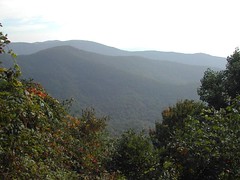Whither Librarians?Steve Outing jumps into the story about the library at the Philadelphia newspapers, which is going to suffer a loss due to buyouts. The same thing happened at the Miami Herald a few years ago. News libraries are being reduced -- and have been -- at several newspapers, particularly the Knight Ridder papers.
There's been a long discussion on the NewsLib group this week about this. Some of us say the old model of a news library is no longer necessary in newsrooms, and researchers need to be information providers/managers, doing CAR, wikis, blogs, and intranets. Many libraries have been doing this for a long time. Even with a reduced library, a proactive researcher or two can keep a newsroom's staff provided with the help they need to do their own research.
The days of librarians being the researchers in newsrooms are going, I believe. Reporters are researchers -- they always have been -- but until now, the databases they needed were restricted. Now with the net, most newsrooms give research resources to all reporters. Researchers are there to make them available and easy to use.
Outing asks, Without librarians, what would Woodward and Bernstein have done? Well, I know something about that. In those days, if the librarians didn't clip the paper regularly and file the stories logically, at least part of their job would have been hard...going back to reread what was already written. (The Post library's files had a backlog then so I kept separate files of every day's stories on Watergate from every paper I had access to.)
The library was also essential as a depository for reference books. Remember the scene in
All the President's Men where Woodward sits in the library going thru piles of
Who's Whos trying to find anything on Kenneth Dahlberg? The day was saved by a librarian who found a photo of him. (This research, essential to putting together the White House/Watergate connection, could probably have been accomplished in 5 seconds in Google.)
But this was before databases, any databases. So you only had paper to rely on. If it had been 10 years later, librarians would have been essential for manipulating complicated Nexis and Dialog (and BRS or Dow Jones) searches to find stories.
Now? Post researchers would be scouring public records databases, using databases to access other records obtained from government agencies (like White House emails), and monitoring news sources. All things reporters could do too, and at many papers this is a reporter's job. So these days it's important for the research department/library/info center to show they can do it better, faster, and more efficiently, and/or be the providers of that information.
Any library that doesn't do this I think may be not long for this new journalism world. Archives are still incredibly important but they are becoming more and more automatic, giving library staff less enhancing to do. A few can do it now; who knows, in the future?






